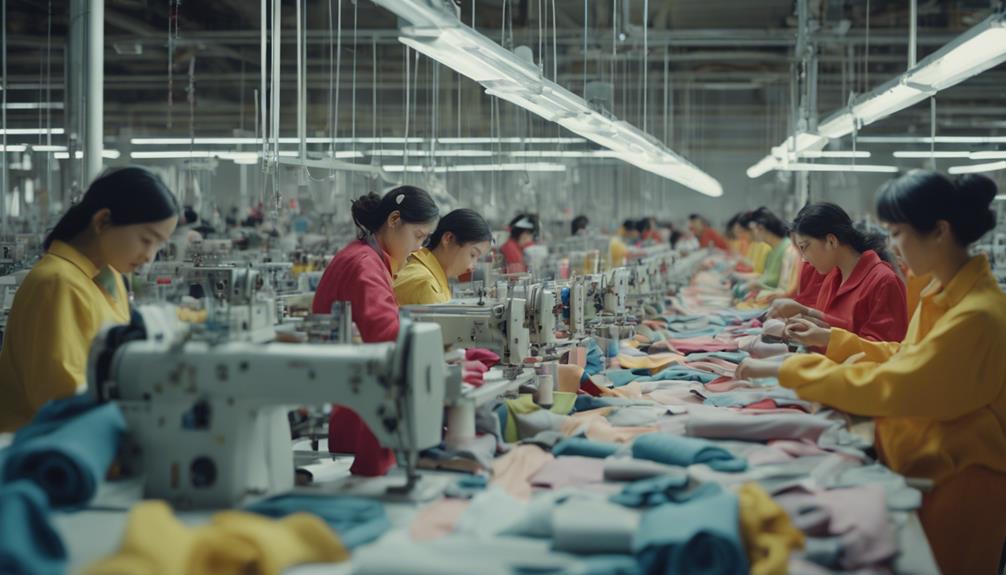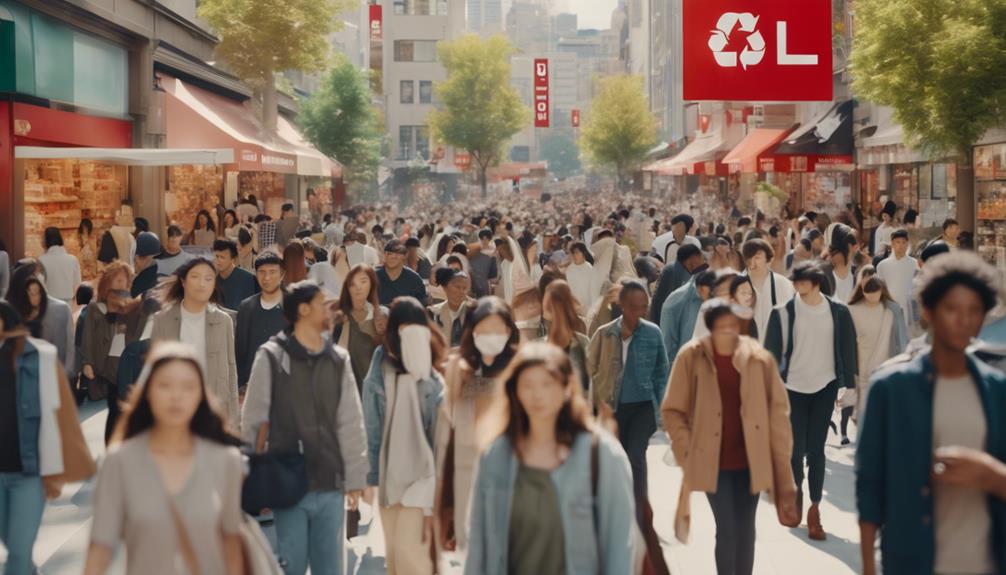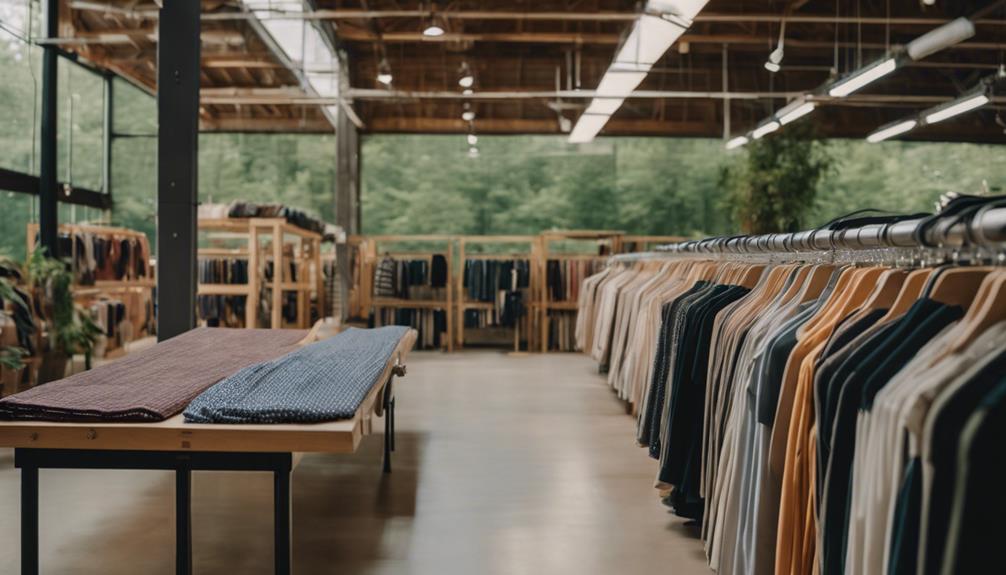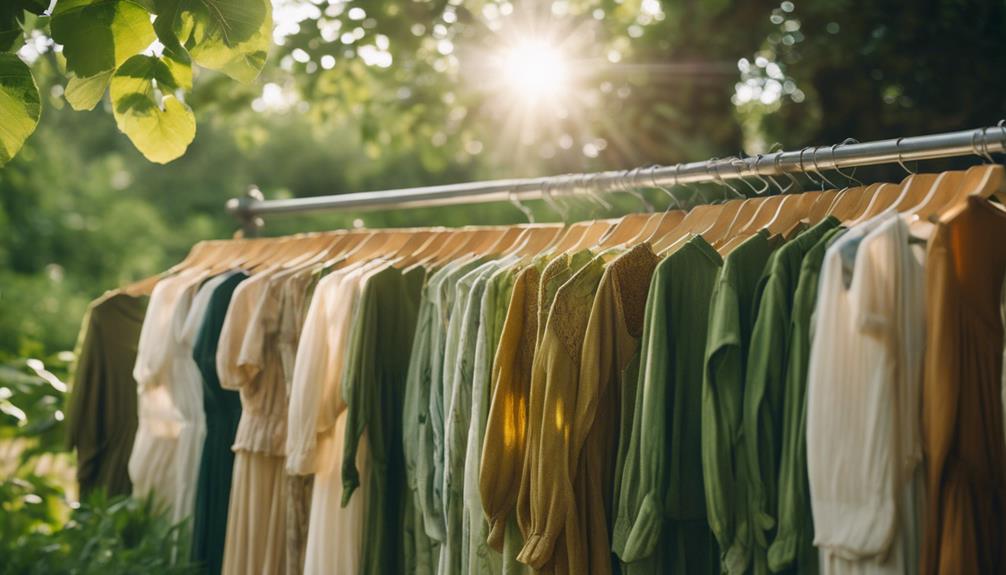Uniqlo’s efforts towards sustainability may come as a surprise to you. Despite being renowned for their affordable, high-quality casual wear, they follow the fast fashion model, which has raised concerns. Uniqlo has taken steps such as introducing clothing recycling and repair programs, but they have been criticized for their use of low-cost labor and synthetic materials. While improvements are being made in their labor practices and environmental initiatives, there are still significant challenges ahead. Many consumers are urging brands like Uniqlo to embrace more sustainable practices. If you’re curious about how Uniqlo stacks up against other brands in terms of sustainability, you may find the comparison enlightening.
It is crucial to consider the overall impact of Uniqlo’s sustainability efforts on the environment and communities worldwide. By embracing sustainable fashion benefits like reducing carbon emissions, conserving water, and implementing fair labor practices, Uniqlo has the chance to enhance their reputation and make a positive contribution to the industry. There is clearly room for growth and advancement in Uniqlo’s sustainability journey, but their progress so far shows a willingness to address the concerns and challenges they face.
Key Takeaways
- Uniqlo has made strides in sustainability with recycling programs, but challenges remain in reducing its overall environmental impact.
- The brand's heavy reliance on synthetic materials raises concerns, despite some initiatives aligned with climate targets.
- Labor practices are under scrutiny, with issues like wage theft and low-cost labor in countries with poor labor standards.
- Consumer demand for ethical practices is influencing Uniqlo, pushing them toward greater transparency and sustainability initiatives.
Uniqlo's Business Model Overview
Uniqlo's business model focuses on delivering affordable, high-quality casual apparel by controlling its entire supply chain from production to marketing. This approach allows you to enjoy low-cost, versatile clothing options that are designed for functionality and comfort.
However, it also places Uniqlo firmly within the fast fashion industry, where quick production cycles and low prices often lead to ethical concerns, particularly regarding workers' rights. The company outsources manufacturing to countries with low labor costs, raising questions about fair wages and working conditions.
As you consider purchasing from Uniqlo, it's vital to think about the implications of this business model. While you may appreciate the stylish, affordable options, the supply chain's reliance on cheap labor can contribute to negative social impacts.
Furthermore, Uniqlo's operations can lead to increased emissions in its supply chain. The fast fashion model, which prioritizes rapid turnover of trends, often results in a disregard for sustainability.
Environmental Impact and Initiatives

When considering Uniqlo's environmental impact, you'll find that the brand has taken steps toward sustainability through initiatives like clothing recycling and repair programs. However, it received only an 'It's a Start' score for its environmental efforts. Uniqlo has set science-based climate change targets that align with the Paris Agreement, but as of now, it reports no progress towards meeting these targets.
While you can appreciate Uniqlo's focus on using some lower-impact materials and reducing water usage in parts of its supply chain, significant challenges remain. The brand aims to create timeless staples that resist fast fashion trends, yet its production processes still involve considerable environmental impact. This includes the use of toxic substances and high resource consumption.
Uniqlo's commitment to transparency in sourcing and manufacturing processes is remarkable, but it faces criticism for relying heavily on synthetic materials. While the brand is recognized for making strides in sustainability compared to competitors, achieving extensive sustainability is still a work in progress. As a consumer, you might want to weigh these factors when considering Uniqlo's role in the broader sustainability conversation.
Labor Practices and Conditions

Labor practices and conditions in Uniqlo's supply chain often raise significant concerns regarding worker treatment and compensation. While the brand's labor rating has improved to 'It's a Start,' reaching a score of 41-50% in the Fashion Transparency Index indicates there's still a long way to go. Uniqlo's social auditing program is accredited by the Fair Labor Association (FLA), but it lacks concrete evidence of ensuring that workers receive a living wage.
One glaring issue is a case involving $5.5 million owed to Indonesian garment workers, which highlights wage theft and worker exploitation. Although Uniqlo has initiated some measures for ethical production, critics argue that the brand still relies heavily on low-cost labor in countries with poor labor standards, like China and Vietnam.
Moreover, Uniqlo's commitment to enhancing responsibility for the welfare of supply chain workers remains a critical concern. Without clear evidence of fair labor practices, it's difficult to feel confident about their ethical commitments.
As a conscious consumer, it's crucial to scrutinize these labor practices and advocate for better conditions in the fashion industry.
Consumer Influence on Sustainability

As consumers become more aware of ethical issues in the fashion industry, their influence is driving brands like Uniqlo to adopt more sustainable practices and improve transparency in their supply chains. You're part of a growing movement that demands eco-friendly initiatives and ethical production, pushing companies to rethink their strategies.
Through platforms like the Good On You app, you can compare brands based on their ethical ratings, making informed choices that hold companies accountable. This consumer activism creates a ripple effect, encouraging Uniqlo and others to implement recycling programs and utilize lower-impact materials to reduce clothing waste.
Research shows that brands responsive to consumer input are more likely to adopt sustainable practices. As awareness of sustainability increases, you and other consumers have a greater influence on brands prioritizing transparency and minimizing their environmental impact.
Uniqlo's gradual improvements in sustainability initiatives reflect this shift, demonstrating how powerful your voice can be. By choosing to support brands that align with your values, you're not just shopping; you're participating in a movement that can shape the future of fashion for the better.
Alternatives to Uniqlo's Fashion

Many consumers are turning to sustainable alternatives to Uniqlo's fast fashion model, seeking brands that prioritize ethical practices and environmental responsibility.
With growing awareness about the impact of textile waste and environmental degradation, it's crucial to explore options that align with your values.
Here are some brands you might consider:
- Allbirds: Known for using eco-friendly materials, they offer sustainable footwear and apparel.
- Patagonia: A leader in environmental activism, they focus on responsible sourcing and durable outdoor clothing.
- Everlane: This brand emphasizes transparency and ethical production, providing minimalist styles that avoid fast fashion trends.
- Reformation: They specialize in trendy clothing while using sustainable materials and practices.
Frequently Asked Questions
Is UNIQLO Truly Sustainable?
You might find Uniqlo's sustainability claims questionable. While they've made some strides, reliance on synthetic fabrics and ongoing labor issues reveal significant gaps in their commitment to true environmental and ethical practices.
Does UNIQLO Use Ethical Down?
When you wrap yourself in Uniqlo's down outerwear, you're embracing comfort sourced ethically. Their Responsible Down Standard guarantees humane practices, but keep an eye on their leather and silk—transparency still needs a spotlight.
Does UNIQLO Have a Sustainability Policy?
Yes, Uniqlo has a sustainability policy that emphasizes environmental care and ethical production. They focus on creating durable clothing, implementing recycling programs, and using lower-impact materials, even though transparency in their supply chain is still lacking.
Is UNIQLO Slow or Fast Fashion?
Uniqlo produces over 1 billion pieces annually, clearly positioning itself as fast fashion. You'll notice its quick turnaround and affordable staples, but that often leads to environmental concerns and ethical production issues you should consider.
Conclusion
In the grand tapestry of fashion, Uniqlo weaves a complex thread of sustainability and ethics.
While it's easy to get lost in the vibrant colors of their offerings, remember that true style isn't just about what you wear; it's about the impact you make.
By choosing wisely, you can be a beacon of change, illuminating a path toward a more sustainable future.
So, step boldly into your wardrobe choices, for every stitch counts in this evolving narrative.









